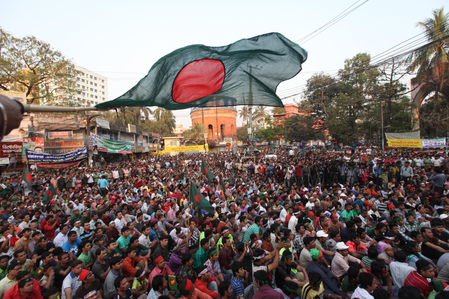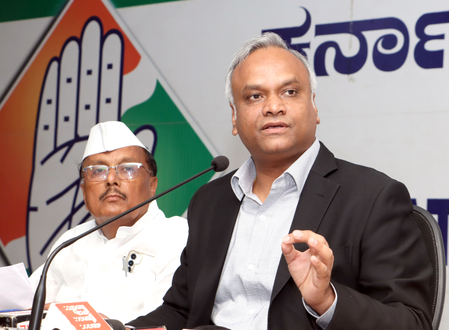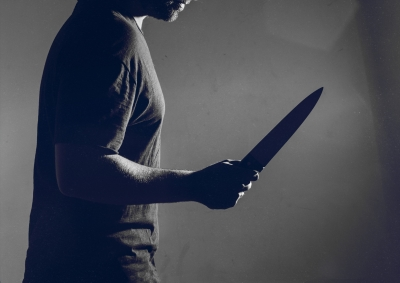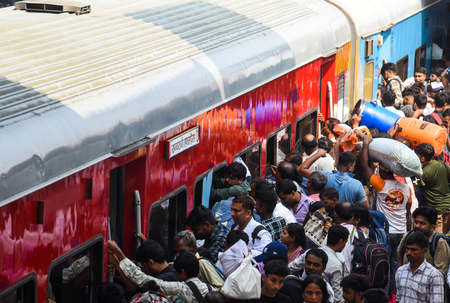
New Delhi, Sep 11 (IANS) When Sheikh Hasina fled the nation on 5th August last year, anti-Hasina forces who led the July uprising hailed that Bangladesh has regained its Independence. Since a year, these forces have been rolling their sleeves to establish that only in 2024, Bangladesh has seemed to gain ‘real’ liberation, often indulging in a narrative making of pushing 2024 uprising over 1971 Liberation War.
Soon after Hasina’s deposition, Bangladesh was faced with acute law and order crisis, expected in situation of sudden political transformation. Taking advantage of this political vacuum, something Bangladeshis did not face earlier, mob, largely Islamist extremists, gained prominence.
Instead of ‘real’ democracy, Bangladesh is now plunged deep into mobocracy, as law enforcement forces are on a state of perpetually struggle to maintain law and order in the country. The interim government, on the other hand, has been paying mere lip service of promising to serve justice without any fruition.
If one has to look at the pattern of Bangladesh’s rising mob culture, one would notice its common targets—secularists, women and minorities.
The resurgence of Islamists is one of the many doings of the interim government, and Bangladeshis, on many occasions, have been at the receiving end of its wrath.
On one hand, Bangladesh witnessed banned groups like Hizb ut-Tahrir openly demonstrating in Dhaka demanding for establishing Caliphate system in Bangladesh.
On the other Towhidi Janata, an informed group of radical Muslims, has been disrupting public spaces to protest against what it claims to be ‘un-Islamic’ activities. These groups have been particularly notorious for suppressing social and cultural events celebrating Bangladesh’s secular ethos, like Book Fair, Basant Utsav, Lalon Mela and Pohela Baishakh.
Women’s public participation, something frowned upon by these Islamists, too came under their attack. From openly preaching for bringing the purdah system back; launching physical assaults on women for not ‘observing’ Islamic dress code; protesting for the release of a Dhaka University’s male employee who physically harassed a woman student for her ‘inappropriate clothing’; objecting women’s presence in public events to threatening and vandalizing women’s sports events, Bangladesh’s new mob culture has been predominantly anti-women, besides anti-secular.
The state of religious minorities, however, is the most deplorable in this case. With law enforcement compromised, Bangladesh’s violent mob has been justifying its actions by labelling it as restoring justice. Religious minorities have been systemically targeted since August 5 last year, threatening their already vulnerable disposition.
According to Bangladesh Hindu Buddhist Christian Unity Council’s July report, there has been a staggering 2,442 incidents of communal violence since last August. Moreover, Ahmadiyas, Sufis, deemed as ‘heresy’ by Islamists, are also targeted, with more than a hundred incidents of attacks reported in the past year.
However, while the interim government has not only failed to take effective measures to curb these mob attacks but also downplayed this systemic violence as ‘political attacks’. Indeed, mob ‘justice’ has been fairly tolerable in New Bangladesh, especially if the enemy is Awami League and its allies.
From vandalism of murals, paintings of Sheikh Mujibur Rahman, demolition of his private residence 32 Dhanmondi; to attempt of desecrating the graveyard of Sheikh Mujibur Rahman in Gopalganj, there has rarely been a word of condemnation from the chief advisor. Instead, a clear narrative making has been at play—blaming ‘external forces’ behind these mob attacks.
The latest horrifying incidents of vandalism of shrines by what believed to be members of Towhidi Janata in Rajbari and Rajshahi is an extension of new Bangladesh establishment’s silence and tolerance of mob culture, giving way for the country’s mobocracy.
The deplorable act of exhuming and burning of the body of self-proclaimed spiritual leader Nurul Haque, popularly known as Nurul Pagla was so bone chilling that even the Islamic parties, who usually provide silent support to this group, have condemned this incident. The attack and vandalism of Aziz Bhandari Khanka Sharif’s shrine in Rajshahi, occurred on the same day of Rajbari violence, despite the presence of police.
The spiritual leader of the shrine has also alleged that the police took no action to prevent mob violence, despite prior warnings from the intelligence agencies.
The home advisor in charge of restoring the country’s law and order, had always denied Bangladesh’s law and order situation to be worse, rather claimed the situation to improve, despite reports telling otherwise. However, recently he agreed that the situation to be ‘somewhat worse’ in light of recent incidents.
The interim government, established primarily to restore the country’s lawlessness has utterly failed in this. Now that the country is gearing up for national election early next time (whether it’s plausible remains to be seen), it can be said with certainty that the inefficiency and deliberate nonchalance of the interim government have led ‘new’ Bangladesh towards mobocracy, perhaps, to a point of no return.
–IANS
scor/




